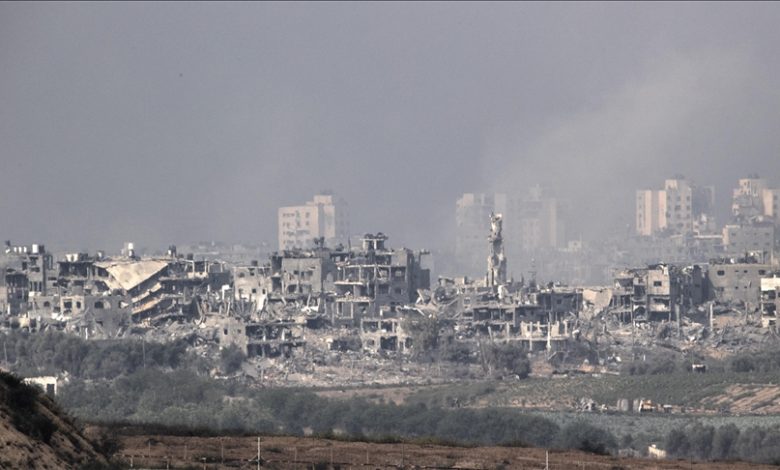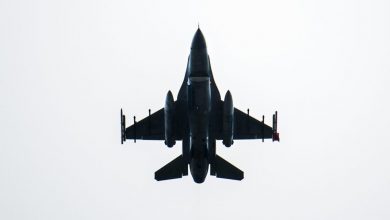Analysis: Israel’s war on Gaza and the liberal order at crossroads

How can one even talk about the international order and nation-states as rational actors when Israeli Prime Minister Netanyahu cites biblical references as a rationale for his actions
Israel’s relentless bombardment of Gaza, including carpet bombing and limited ground excursions, is ongoing. The Israeli onslaught reached its pinnacle so far on the night of Oct. 28. By cutting access to electricity, water, and communications, the Israeli establishment has turned this war into a medieval-like siege, pushing millions of civilians into starvation and horrible deaths.
Regrettably, a humanitarian ceasefire resolution, backed by 120 approvals against 14 rejections but denounced [1] as ‘despicable’ by Israel, appears futile. Unfortunately, the UN resolutions have long been toothless when it comes to Israeli exactions and are not even worth the paper they are printed on. This situation will continue as long as there is a feeling of unaccountability for Israel, given the unwavering American and Western support, a blank cheque for Israel.
Enduring cycle of violence
As the enduring cycle of violence persists, it is also time to question the post-World War II global order. The latter was founded on liberal values to maintain peace and prevent conflicts. However, given the chronic inefficiency and apathy of the UN and its bodies, numerous conflicts are, at best, frozen or, at worse, relegated to the domain of oblivion. For many nations in the Global South, the so-called universal values have become mere hypocrisy. Meanwhile, Gaza is transformed into a nightmarish inferno by Israel.
Over the past three weeks, a chorus of voices from various United Nations (UN) bodies and numerous civil society organizations have echoed calls and shed light on significant observations. Human Rights Watch and Amnesty International, in their assessments [2], have pointed to the commission of war crimes by Israel. They cite the use of white phosphorus bombs and the deliberate targeting of civilians and non-military structures, characterizing Israel as an overwhelmingly disproportionality on Gaza. Unsurprisingly, Israeli officials have, in a predictable fashion, accused Amnesty International of “antisemitism,” dismissing all their assessments. It appears that antisemitism is a salve that Israel believes can heal every wound it sustains.
Unwavering support from Western nations
Surprisingly, while Israel claims to be engaged in “counterterrorism” and “self-defense,” it is garnering unwavering support and empathy from Western nations. Within their repetitive condemnations and official statements, there is a recurring theme of “safeguarding democracies elsewhere.” However, these words now stand on shaky ground, with global public opinion increasingly questioning their authenticity in light of the fundamental values underpinning the international order. It almost appears they all read from the same script or its abridged versions.
The contrasting statements and demeanor of Pentagon spokesperson John Kirby in two separate incidents paint a vivid picture. In the early stages of the Russia-Ukraine War last year, Kirby said,[3] “It’s hard to look at what he [Putin] is doing in Ukraine, what his forces are doing in Ukraine, and think that any ethical, moral individual could justify that… So, I can’t talk to his psychology, but I think we can all speak to his depravity.” With a poignant pause and a solemn expression, he delivered a performance that could rival any Hollywood actor’s.
Yet, in a recent press conference,[4] Kirby’s tone shifted markedly: “This is war. It is combat. It is bloody. It is ugly, and it’s going to be messy. Innocent civilians are going to be hurt going forward,” he asserted, almost normalizing the Israeli brutality by situating it among hundreds of thousands of wars and conflict in the world history. To the question, “Has the US set or discussed any possible red lines?” he responded, “No.”
This example underscores a troubling reality: The United States, which positions itself as the key architect and stakeholder in the so-called rules-based liberal international order, only respects international law when it suits its interests. So, a question arises: why should others respect this order from now on?
Contradictions and double standards abound when it comes to the issue of Palestine. The West, which has long adopted a condescending attitude as a “lessons-giver” on democracy, human rights and the rule of law, is now banning[5] student marches in support of Palestine in Europe and the US under ridiculous pretexts such as allegedly conveying a “message of supporting terrorism.” The planned concert in Switzerland by renowned Turkish pianist Fazil Say was canceled [6] because of his social media posts supporting Palestine. US Secretary of State Blinken urged [7] Qatar to muzzle Al Jazeera. Even UN Secretary-General Guterres has faced a strong backlash and criticism when he stated[8] that “Hamas attacks did not happen in isolation. The Palestinian people have endured 56 years of a suffocating occupation.”
How can one even talk about the international order and nation-states as rational actors when Israeli Prime Minister Netanyahu cites biblical references as a rationale for his actions, insisting on fulfilling “Isaiah’s prophecy” through the ongoing brutal war on Gaza?
Recently, experts debated the BRICS Summit and whether this new bloc could represent a competition to the liberal international order. However, the Israel War on Gaza reveals that the challenge to the current order is not so much from outside that it is from within the system’s confines. All values brought forward by the US-led global order are under threat, from war crimes and humanitarian law to freedom of expression and the right to assemble.
It is time to choose. Either the so-called value-based order respects its own values and pushes for a ceasefire and a negotiated settlement based on good faith in Palestine, or it is time to end this nonsensical masquerade.
Source: AA





